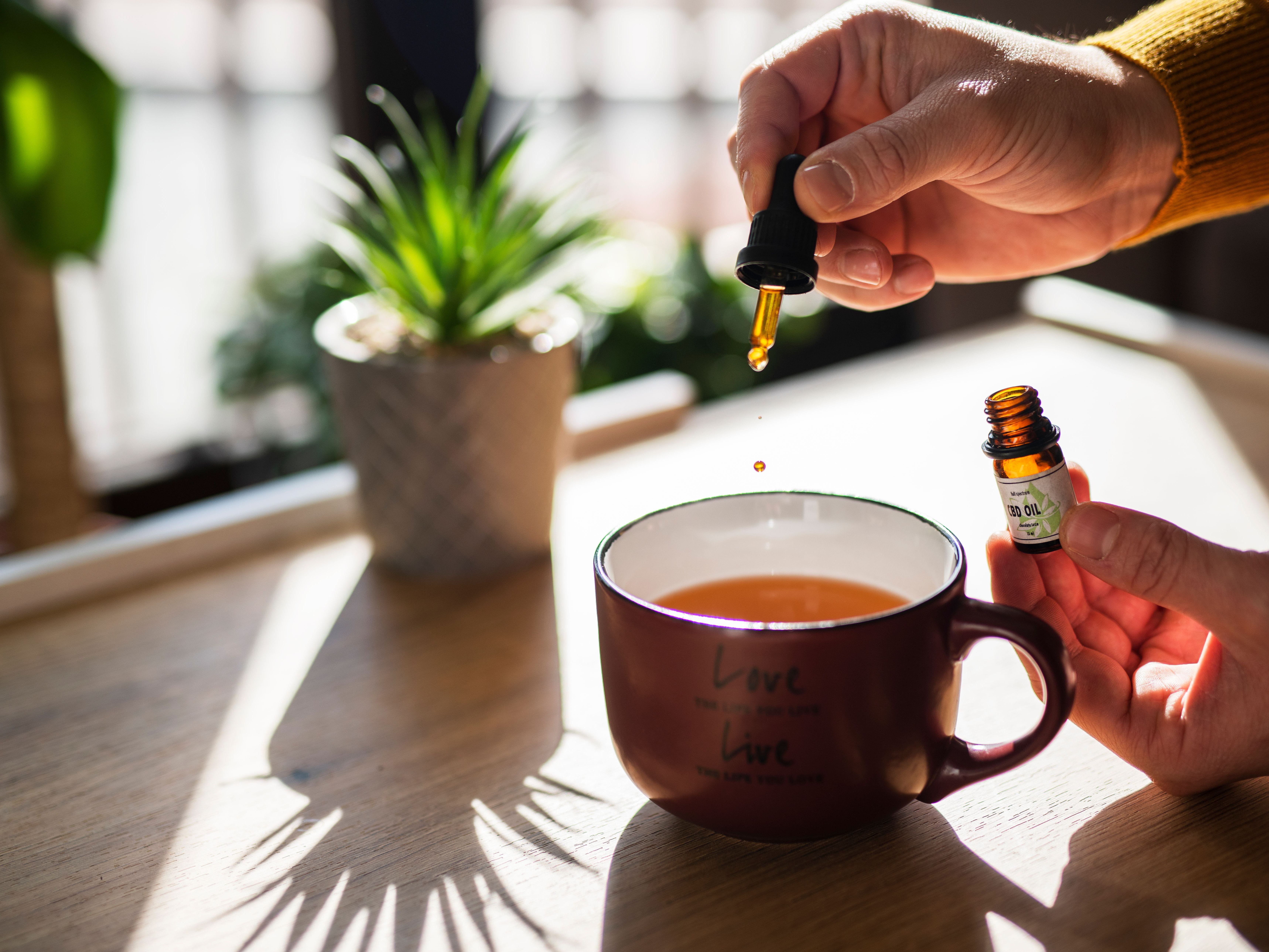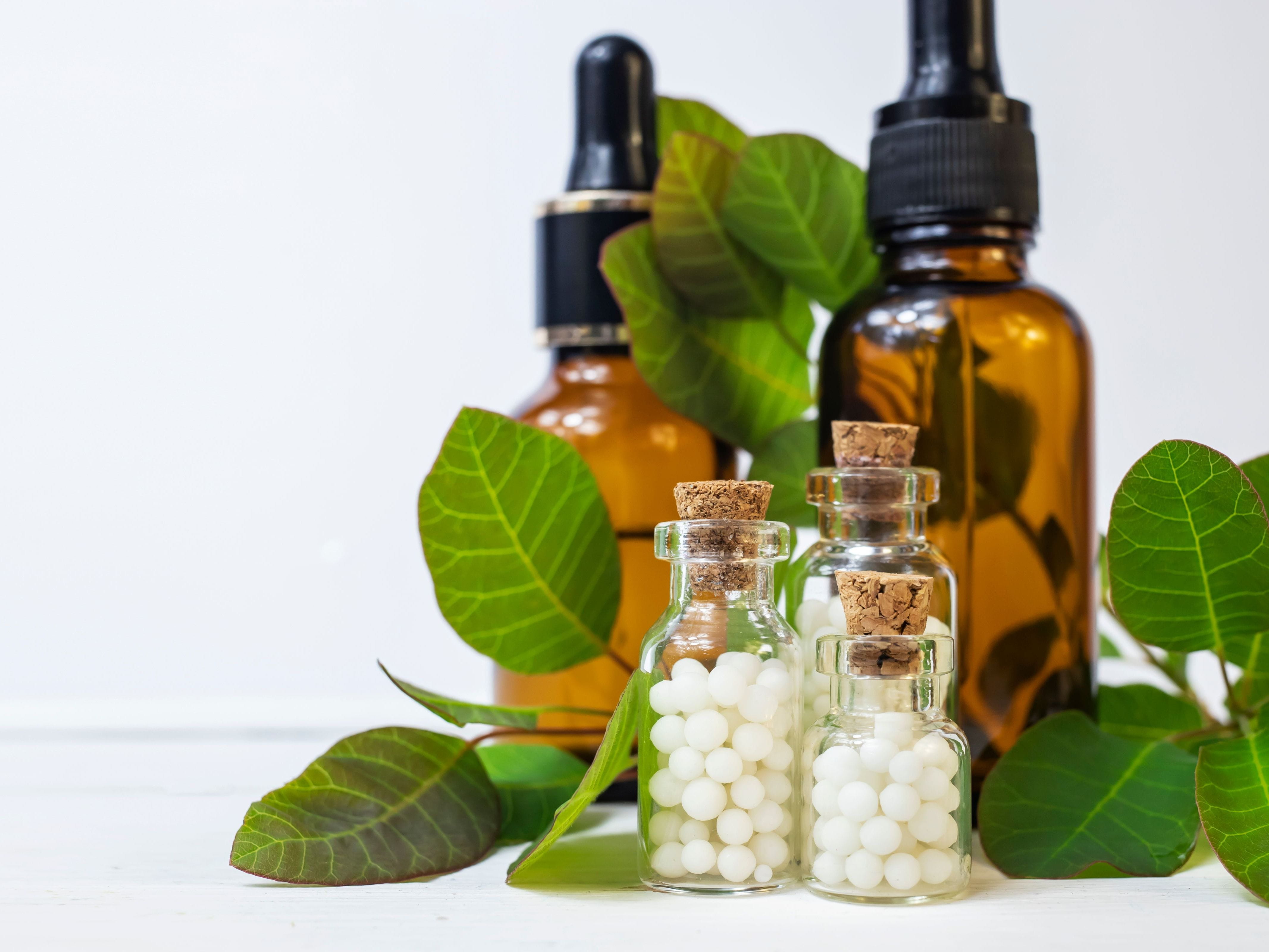Should I Use a Homeopathic Medicine?

The Bottom Line
Many people believe homeopathic remedies are safe because they are natural and contain a small amount of active ingredient. However, homeopathic products are not uniformly regulated, and homeopathy is not a standardized medical practice. Inconsistencies in final product formulations and practitioner certifications can lead to dangerous consequences.

What is homeopathic medicine?
Homeopathy, or homeopathic medicine, originated more than 200 years ago. There are 2 main principles used to create homeopathic remedies. The first principle is “like cures like”, which says that a disease or ailment can be cured by a substance that produces similar symptoms in a healthy person. The second principle is the “law of minimum dose”, which says that a lower dose of active ingredient will be more effective in treating a condition than a higher dose. Homeopathic products are made by repeating a dilution of specific “active” ingredients many times over. Products are routinely watered down to the point that the amount of active ingredient is either undetectable or minimal in the final product.
Homeopathic remedies are made from plants, minerals, or animals (such as crushed bees). Some common ingredients are known to have toxic effects when ingested by humans, such as poison ivy, belladonna (deadly nightshade), and white arsenic. The remedies frequently take the form of small tablets to be placed under or on top of the tongue. However, homeopathic products also can be ointments, gels, drops, creams, and liquids. Homeopathic liquids are mainly “tinctures” which means the final product contains alcohol.
Practitioners of homeopathic medicine “individualize” treatment to each unique person. Assessment by a homeopathic practitioner will include questions about patterns of clinical signs and symptoms in order to tailor the treatment plan to the patient. This means that the therapies given to patients who complain of the same problem will likely receive different treatments.
Do homeopathic medicines really work?
This question is difficult to answer because of the small number of clinical studies available for review. Three reviews of clinical studies on homeopathy reported that its effects appear more than placebo, yet one review found its effects consistent with placebo. Other analyses of the clinical studies done with homeopathic products have not shown any definitive results. Study results are frequently not able to be replicated. Some studies conducted had serious design flaws, including potential for bias to interfere with results. Many studies have used very small sample sizes. As of now, a firm conclusion is unable to be drawn.
There is evidence from randomized, controlled trials that homeopathy may be effective for the treatment of influenza, allergies, postoperative ileus, and childhood diarrhea. Evidence also suggests that homeopathy is ineffective for migraine, delayed-onset muscle soreness, and influenza prevention. There is a lack of conclusive evidence on the effectiveness of homeopathy for most conditions. Homeopathy needs to demonstrate its value by using evidence-based principles. At this point, it should not be substituted for proven therapies.
Is homeopathic medicine safe?
There is a misconception that “natural product” means “safe product”. Some people believe that homeopathic products are inherently without risk because the product is natural and the dose of active substance barely detectable. This is not the case.
First, the FDA does not provide guidance for the manufacturing process companies use to make their remedies. This means that separate batches of one specific formulation might contain very different amounts of active substance. There have been several cases of homeopathic medicines being contaminated with heavy metals or other materials. Second, purchasers of homeopathic remedies are mostly self-treating. This can be risky or problematic, especially if a patient is not communicating their homeopathic usage to their traditional medical providers. Third, all medications whether they are prescription, over-the-counter, herbal, or homeopathic, have the potential to cause drug interactions and carry risk for sensitivity or allergic reaction. Allergic reactions can be caused by the active ingredient or any of the other ingredients (such as dyes, binders, or flavorings) used to manufacture the product.
What can I use homeopathy to safely treat?
People who use homeopathic products have reported seeking treatment for asthma, ear infections, food allergies, hay fever, dermatitis, arthritis, migraine headaches, high blood pressure, and psychiatric conditions such as depression, stress and anxiety. There has been no clear evidence to support whether homeopathy improves any of these conditions.
What are some common homeopathy myths?
One myth about homeopathic remedies is that they are totally safe and without side effects. It seems difficult to believe that homeopathic “natural” remedies can be harmful. It is important to remember that these products are not manufactured with clear guidelines and therefore the contents in the final product can be inconsistent. Homeopathic remedies made by large factories as well as those concocted by private practitioners are both at risk for inconsistencies and errors in final product. Human error is a real risk. Several cases detailing adverse events and toxicities due to homeopathic treatments have been reported. These include liver toxicity, arsenic toxicity, hospitalization with stomach pain, vomiting, cardiotoxicity, seizures and even death.
Who can prescribe homeopathic remedies?
Practitioners of homeopathy across the United States (and the world) do not all have the same credentials. States have varied requirements for practicing homeopathic medicine. There are many agencies that provide a homeopathic practitioner certification. A certification, however, is not equivalent to a license, which would be earned with oversight from a governmental agency and would include some standardization of learning to establish competency. Some states do require homeopathic practitioners to be credentialed medical or naturopathic doctors. For example, Arizona, Connecticut, and Nevada are the only states with homeopathic licensing boards available only for doctors of medicine (holders of MD degrees) and doctors of osteopathic medicine (holders of DO degrees). This means that homeopathic practitioners in these three states must already have earned an MD or DO degree in order to qualify for a homeopathic credential.
What about homeopathic vaccinations?
Claims have been made about products called “nosodes” or “homeopathic immunizations” suggesting they could substitute for traditional vaccinations. There has been no scientific evidence to justify these claims. “Homeopathic immunizations” will not prevent disease like traditional vaccinations. The National Center for Complementary and Integrative Health supports the Centers for Disease Control and Prevention’s (CDC) recommendations for immunizations/vaccinations. It is NOT recommended to choose a homeopathic vaccination. The CDC provides a recommended vaccination schedule which is regularly reviewed and updated.
I used a homeopathic remedy. Is it safe?
If someone uses or swallows a homeopathic remedy and experiences new, unexpected, or unusual side effects, or if you have a question about using homeopathic products safely, help from experts is available through the webPOISONCONTROL online tool at www.poison.org and by phone at 1-800-222-1222. Poison Control’s expert guidance is always free, confidential, and available 24 hours a day.
Kit DeMarco, PharmD
Community Pharmacist
Poison Control Media Information
Did you find this page helpful? If so, we need your support. Poison Control is in constant competition with misinformation online. Links to www.poison.org or our webPOISONCONTROL triage tool from other websites and blogs help internet searchers quickly find accurate information and Poison Control’s contact information in an emergency. If you use the content from this page, please provide attribution via a link back to this page, www.poison.org, or https://triage.webpoisoncontrol.org/#!/exclusions. By doing so, you could save a life. Thank you!
Poisoned?
Call 1-800-222-1222 or
Prevention Tips
- Store medicines up, away, and out of sight of children.
- Tell all medical providers of any homeopathic products you are using.
This Really Happened
Hyland’s is one of the largest well-known homeopathic companies making homeopathic products for the public. One of the company’s products, Hyland’s Teething Tablets was reported to the FDA with hundreds of adverse events, including deaths, affecting babies and toddlers.
One mother noticed her 3-month-old infant’s arms began twitching after giving Hyland’s teething tablets. Not realizing the connection between the twitching and the homeopathic product, the mother continued giving the teething tablets to the baby for relief. The twitching worsened, moving to his arms and legs. The family doctor was consulted and the mother stopped giving the tablets. The infant’s symptoms went away and fortunately the baby did not have any long-term effects.
Another mother reported giving her toddler 3 teething tablets. Within 30 minutes, the toddler suffered a seizure, lost consciousness, and stopped breathing. The baby received medical care including CPR at the hospital and was revived. These are just 2 of the 370 cases reported to the FDA between 2006-2016 in which adverse reactions, including 8 deaths, were reported after using Hyland’s Teething Tablets. The FDA investigation found Hyland’s Teething Tablets contained inconsistent, sometimes extremely high amounts of Atropa belladonna (deadly nightshade), a known poisonous substance, due to substandard manufacturing processes. The product has since been removed from the market. These cases dramatically illustrate the potential for any products not manufactured according to strict FDA guidelines to be dangerous.
For More Information
The American Institute of Homeopathy
The North American Society of Homeopaths
The Council for Homeopathic Certification
The American Board of Homeotherapeutics
References
Homeopathy: What You Need to Know. Updated April 2021. National Center for Complementary and Integrative Health. https://www.nccih.nih.gov/health/homeopathy. Accessed 6/12/2024.Forbes. Victoria Forester. Man Hospitalized After Overdosing on Homeopathic Remedy. June 1, 2021. Accessed 6/12/2024.
https://www.researchgate.net/publication/280766752_A_case_report_of_cardiotoxicity_due_to_homeopathic_drug_overdose accessed 6/13/2024. November 2014 International Journal of Medical Research & Health Sciences 3(4):1072 November 2014 3(4):1072 DOI:10.5958/2319-5886.2014.00057.5 License CC BY-NC-SA 4.0 Milind Chandurkar, Girish Patrike, Nitin Chauhan, Sanket Mulay, Manoj Vethekar, Jaweed Akhtar, Mallikarjun Reddy
Sheila Kaplan and STAT. Hundreds of Babies Harmed by Homeopathic Remedies, Families Say. February 21, 2017. Accessed 6/12/2024. https://www.scientificamerican.com/article/hundreds-of-babies-harmed-by-homeopathic-remedies-families-say/
Ullman D. An Analysis of Four Government-Funded Reviews of Research on Homeopathic Medicine. Cureus. 2021 Jun 24;13(6):e15899. doi: 10.7759/cureus.15899. PMID: 34336416; PMCID: PMC8312774.
Dossett ML, Yeh GY. Homeopathy Use in the United States and Implications for Public Health: A Review. Homeopathy. 2018 Feb;107(1):3-9. doi: 10.1055/s-0037-1609016. Epub 2017 Dec 22. PMID: 29528473; PMCID: PMC5989719.
Poisoned?
Call 1-800-222-1222 or
Prevention Tips
- Store medicines up, away, and out of sight of children.
- Tell all medical providers of any homeopathic products you are using.
This Really Happened
Hyland’s is one of the largest well-known homeopathic companies making homeopathic products for the public. One of the company’s products, Hyland’s Teething Tablets was reported to the FDA with hundreds of adverse events, including deaths, affecting babies and toddlers.
One mother noticed her 3-month-old infant’s arms began twitching after giving Hyland’s teething tablets. Not realizing the connection between the twitching and the homeopathic product, the mother continued giving the teething tablets to the baby for relief. The twitching worsened, moving to his arms and legs. The family doctor was consulted and the mother stopped giving the tablets. The infant’s symptoms went away and fortunately the baby did not have any long-term effects.
Another mother reported giving her toddler 3 teething tablets. Within 30 minutes, the toddler suffered a seizure, lost consciousness, and stopped breathing. The baby received medical care including CPR at the hospital and was revived. These are just 2 of the 370 cases reported to the FDA between 2006-2016 in which adverse reactions, including 8 deaths, were reported after using Hyland’s Teething Tablets. The FDA investigation found Hyland’s Teething Tablets contained inconsistent, sometimes extremely high amounts of Atropa belladonna (deadly nightshade), a known poisonous substance, due to substandard manufacturing processes. The product has since been removed from the market. These cases dramatically illustrate the potential for any products not manufactured according to strict FDA guidelines to be dangerous.
